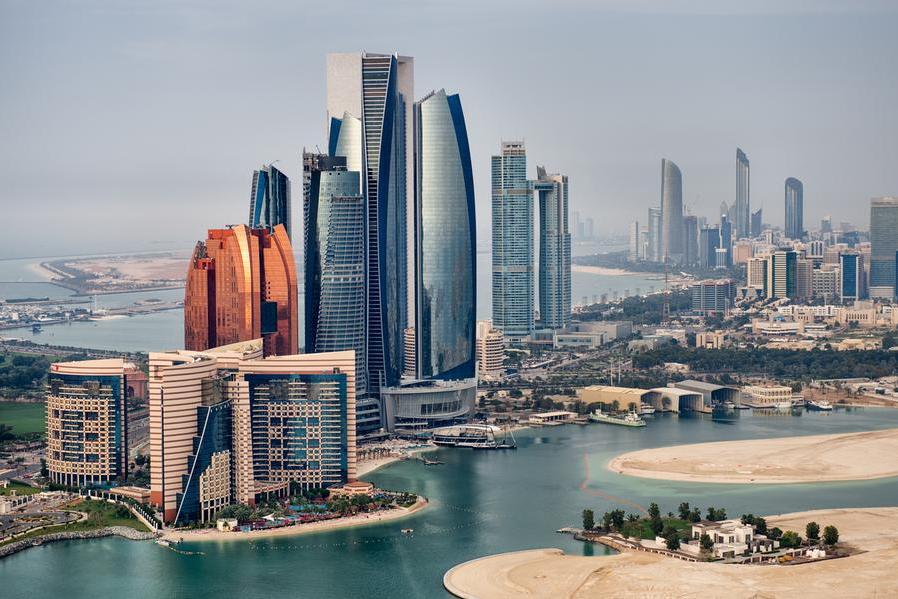UAE's Mubadala Sets Sights on Brazil's Biofuel Boom
In a historic move, the UAE's Mubadala Capital is investing a whopping $13.5 billion in Brazil's biofuel industry, eyeing sustainable energy and market expansion.
Published May 07, 2024 - 00:05am

Image recovered from zawya.com
RIYADH: Brazil's biofuel market is primed for exponential growth as UAE's Mubadala Capital commits a staggering $13.5 billion over the next decade. Announced plans to fund a series of large-scale biofuel projects highlight the strength of Brazil's agricultural sector and its potential to become a powerhouse for renewable energy sources, such as renewable diesel and sustainable aviation kerosene derived from non-food plant matter.
The investment strategy, revealed through interviews with the Financial Times, encompasses the development of five biofuel modules, each at $2.7 billion, and the conversion of an existing oil refinery in Bahia for green energy production. This refinery was acquired from Brazil's state-controlled Petrobras in 2021, furthering Mubadala Capital's endeavors within the country.
According to Oscar Fahlgren, head of Brazil strategy at Mubadala, the investment, funded through equity and debt, will leverage Brazil's optimal agricultural conditions. The project, scheduled for a progressive rollout starting by 2026, is expected to significantly expand Mubadala's already substantial $6 billion portfolio in Brazil. Beyond the bioenergy sector, the sovereign wealth fund's asset management arm is also set to advance the financial infrastructure of Brazil with the opening of a new stock exchange in the coming year through its Americas Trading Group, suggesting strong confidence in Brazil's investment climate.
The UAE sovereign wealth fund's bold move into the biofuel industry corresponds with a sharp focus on sustainability and renewable energy, riding the wave of the global green energy transition. It encapsulates a futuristic vision where Brazil's renewable energy capabilities are equated to the UAE's oil production expertise. With external investors contributing to two-thirds of Mubadala's capital in Brazil, international collaboration appears key to realizing these ambitious objectives.
The strategic embarkment of Mubadala Capital into Brazil's burgeoning biofuel market signifies not just an investment in energy production but also in sustainable growth and environmental stewardship. This decisive shift is seen as a proactive approach to the environmental challenges faced by the fossil fuel industry and a step towards meeting international climate commitments. Recognized as a world leader in biofuel technology, Brazil's conducive climate and sophisticated sugarcane ethanol industry provide a perfect incubator for this type of initiative.
Mubadala Capital's funding will focus on churning out renewable fuels by utilizing non-edible biomass, such as sugarcane bagasse and straw, which minimizes competition with food resources and reduces carbon emissions. Collaborating with local companies, the project aims to harness advanced second-generation biofuel technologies to ensure maximum efficiency and sustainability. This initiative is expected to yield substantial socio-economic benefits, fostering job creation in rural areas and bolstering technology transfer, while also tackling environmental concerns head-on.
At the forefront of technological innovation in renewable energy, Brazil is positioned to leverage its robust agricultural framework to meet the surging global demand for cleaner energy sources. The initiative will aid Brazil in achieving its own renewable energy targets while cementing its status as a leader in the industry. Moreover, the move dovetails with Brazil's RenovaBio program, aimed at reducing greenhouse gas (GHG) emissions by incentivizing carbon credits in the biofuel sector.
The synergy between Mubadala Capital and Brazil's biofuel industry underlines the growing trend in cross-border investments that prioritize sustainability. This partnership is a testament to the shared vision of creating a low-carbon economy and the acknowledgment that strategic investments in renewable energy not only make ecological sense but are also increasingly economically viable. It sets a precedent for the kind of international collaboration that is paramount in battling global climate change.
The transformative power of this endeavor is not solely limited to the environmental sector. By establishing a new stock exchange, the UAE sovereign fund seeks to unlock and stimulate the financial market in Brazil, aiming to create an efficient, transparent, and dynamic capital market. This move is intended to foster a competitive environment conducive to attracting more investment and diversifying economic activities. Expansion into financial services demonstrates a broad-spectrum approach to development and underlines the confidence that Mubadala has in Brazil's economic prospects.
Yet, the venture's success hinges on navigating the complex regulatory and logistical challenges inherent in Brazil's market. For this massive influx of capital to translate into tangible results, meticulous planning and robust infrastructure development will be critical. Partnering with local entities and streamlining permissions will be vital components of the strategy to deploy this capital effectively. These collaborations pave the way for knowledge exchange and strengthen the bonds of international economic relations, further solidifying Brazil's position on the map of sustainable energy superpowers.
In conclusion, Mubadala Capital's investment is a groundbreaking stride toward ecological and economic transformation. It exemplifies the kind of foresight needed to turn Brazil's vast renewable resources into a beacon of green innovation. As the world witnesses an increasing number of investors shifting toward renewable energy, Brazil's experience could serve as a blueprint for other nations seeking to capitalize on their renewable resources and aspire towards a greener, more sustainable future.







